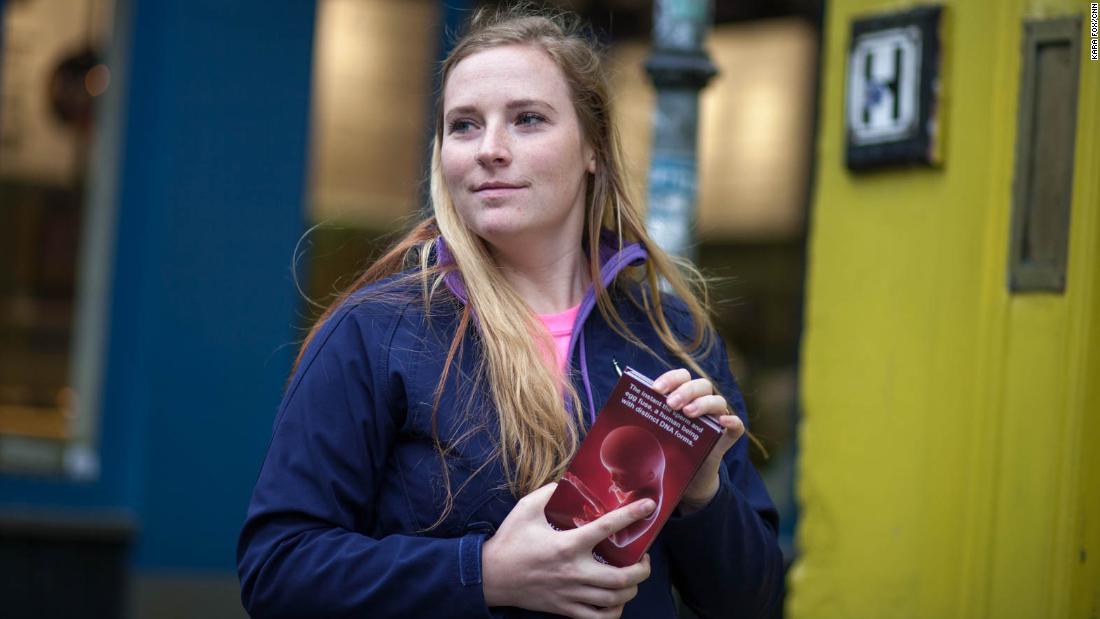
Dublin (CNN)Emily Faulkner is in central Dublin, handing out leaflets featuring fetuses in various stages of development, when she's pelted by an egg.
"Did you get that on tape? Is it on, babe? Turn it on," she says.
As Faulkner wipes the mess from her face, a fellow anti-abortion campaigner approaches her, saying she'll be calling the police to have a look.
"Ok," Faulkner says with a smile. "I'm excited."
With just days until Ireland votes in a referendum on whether to repeal the Eighth Amendment to the constitution -- which places the right to life of an unborn child on equal footing with that of the mother -- campaigners have become increasingly confrontational in their tactics.
If a majority vote Yes on Friday, Ireland is expected to enact legislation that will allow for terminations up to 12 weeks into a pregnancy. A No vote would keep the country's abortion laws -- some of the most restrictive in the developed world -- in place.
But not all of those targeting voters with leaflets, placards and social media posts are Irish.
Faulkner, 23, and Berning, 25, are founders of the Colorado-based anti-abortion group Let Them Live. They've travelled to Ireland for the month leading up to the historic poll to "sway the voters to vote pro-life and hopefully keep Ireland pro-life."
"Basically it's a Roe v. Wade, but Irish style," Faulkner told a group of American students she was attempting to recruit for the journey, referring to the landmark 1970s court case that made it legal for women across the United States to have abortions.
When the couple (both associated with the US-based conservative nonprofit The Leadership Institute) launched a $10,000 crowdfunding campaign to finance the trip, they had written they'd be volunteering with Ireland's Pro Life Campaign. But after they experienced an "unexpected" backlash from Irish pro-repeal groups, who said they weren't welcome and threatened to report them to immigration, they changed that description, removing any mention of joining the campaign in an official capacity.
"We were deathly afraid we were going to get turned away at the gate," says Berning, and "wanting to make sure that people didn't feel threatened by us coming."
Groups dedicated to repealing the Eighth Amendment described the couple's tactics as deceptive.
Faulkner said she and Berning arrived at Dublin airport in early May and told immigration officers they "had no specific plans for the trip other than documenting" the campaign. Once they were let through the airport gates, the pair began to mobilize, designing canvassing materials they described as "information outreach" that another member would carry to Ireland from the US.
The members of Let Them Live are not the only Americans supporting the anti-abortion movement here.
One branch of the national pro-repeal group Together for Yes told CNN its members have heard American accents on their doorsteps. LoveBoth, a prominent "No" campaign group, brought over the American activist and "abortion survivor" Claire Culwell to speak at its rallies across the country in April.
That's a sore subject for the members of Let Them Live, who had been hoping to work in a more official capacity with the No campaign.
"I think there's just a paranoia," Berning explained of the reasons why No campaigners didn't want to get involved with his group. "They don't want to break any rules. For us, it sucks because we want to help them, but for them, they're being smart ... maybe."
Under Irish law, foreign citizens and groups are not allowed to make any financial donations to Irish campaign groups. However, it is unclear if Let Them Live would have been allowed to campaign officially with the No campaign in a voluntary capacity.
Although the Irish government states that "you need a Volunteer Visa to come to Ireland to do voluntary work, eg for a charity, non-profit or voluntary organisation," data obtained by CNN shows that no Americans are currently on those visas. Ireland's Department of Justice and Equality told CNN "volunteering 'per se' is not prohibited by law for those in Ireland on valid holiday visas."
Some Irish are outraged by foreign groups like Let Them Live, arguing that American campaigners are using their vacations to stage a proxy war on women's rights in their country.
Máireád Enright, an Irish abortion rights campaigner and senior lecturer in law at the University of Birmingham in England, is more skeptical of their reach.
"I don't have a legal objection to it but it strikes me as a poor educational experience," she said.
"I would wonder about how they justify it -- whether they justify it as a human rights campaign or whether they are justifying it as a free trip to the 'old country' in which they will engage in politics that I would imagine they would have very little direct personal understanding of."
"Personal engagement on a local level has always been crucial to Irish politics, so that kind of butting in is very difficult to do effectively. So the idea that a foreign group would think they would have much of an impact in the way of direct canvassing strikes me as terribly naive."
On an overcast morning, the Americans huddled in prayer outside a city council building.
They were there to attend and film an abortion rights campaign event.
Inside, members of Let Them Live filed into front seats, where they listened to a panel of abortion rights activists speak about the harm they believe the Eighth Amendment causes to women.
Ireland's Health Minister warned about a "fog" of misinformation being used to "conflate" and "confuse" voters. A video played, featuring parents of a pregnant woman who traveled for a termination after being told her baby wouldn't survive outside the womb. They appealed for compassion.
"You cannot judge people's actions and say you have the solutions," the woman in the video said.
As the event wrapped up, Berning exchanged his video camera for a packet of Let Them Live flyers. He laid them out on the panelists' table as one of the group's members, Benyam Capel, was asked to stop filming with a concealed palm-size camera.
They regrouped outside, where Faulkner and other members began to distribute flyers to passersby until building security informed them that leafleting on city council grounds was prohibited.
Berning questioned that.
"Oh, that wouldn't be true, because they have the constitutional right to freedom of speech," he said.
But laws in Ireland differ greatly from those in the US. And for some Irish, who fear foreign influence on their political process, it is this attitude that is worrisome.
The self-described "pro-life warriors" then took to a central Dublin street, where their flyers were met with mixed reactions, perhaps an indication of the latest voter intentions. Recent polls suggest the Yes campaign is ahead, but only slightly.
Berning handed a flyer to a woman who was walking briskly through the street with her partner. After glimpsing at the flyer, she then paused before ripping it up slowly.
The group was also met with more positive responses, including a mother who politely smiled as she explained she already understood the various stages of embryonic development. Another man told them he wasn't interested in flyers but would be voting No because he didn't trust politicians.
Then there were those who were upset to learn the group were not Irish.
"It's a little bit curious because what you've got here are other people coming and interfering here," said George H. 23, who asked for his last name to be withheld. "It seems odd on the surface because it's an Irish constitutional issue."
"It feels like Russia and America and Donald Trump -- and that wasn't wanted. Is this wanted [here]? Its slightly off, if you know what I mean."
Ireland's referendum is taking place in the wake of the Cambridge Analytica revelations, the Brexit "Vote Leave" finance scandal and continued fallout surrounding alleged Russian interference in the 2016 US election.
Irish politicians are struggling to come to terms with the far-reaching impact social media can have on elections, while real-time indicators of foreign interference have sparked fears among transparency groups that Ireland could also be vulnerable to a similar fate as its neighbors to the east and west.
Although Irish law bans foreign donations to campaigns, regulations around foreign advertising online don't exist. This effectively leaves Facebook, Google and Google-owned YouTube as prime campaigning grounds for anyone wishing to run an ad, regardless of location.
Irish lawmaker James Lawless first put forward a Social Media Transparency Bill in December 2017, with the aim to reduce the risk of foreign actors influencing upcoming campaigns. The bill was rejected last year, but it's now being reconsidered as the decisions of the two American tech giants have brought international attention to Ireland's electoral integrity.
In early May, Facebook said it would ban foreign-bought ads related to the vote, while Google paused all ads related to the referendum.
Pro-repeal groups applauded the decision, saying it would level the playing field.
Anti-abortion groups said the move was evidence of a "rigged" election and a clampdown on free speech that would effectively "silence" their campaign.
Berning, who runs a tech startup and worked on former US presidential candidate Ben Carson's campaign, told CNN that Let them Live's Facebook page had been "unfairly" banned from posting material targeting an Irish audience, although a "few have slipped through."
And those loopholes are popping up across the platform.
The Transparency Referendum Initiative (TRI), a volunteer organization set up to monitor social media posts about the referendum, found at least 31% of new ads captured in the week after Facebook's announcement were administered at least in part by page managers outside Ireland, with a disproportionate amount of them connected to the No campaign.
Meanwhile, some US-based anti-abortion groups have been able to continue running ads on their Facebook pages that have targeted Irish voters directly.
One of them, the controversial New York-based Expectant Mother Care (EMC) FrontLine Pregnancy Centers, ran at least 10 anti-abortion ads targeting Irish voters following Facebook's announcement. Its founder is currently visiting Ireland in the lead-up to the vote.
While that battle continues to rage online, the Let Them Live members are hoping their efforts on the ground can help sway voters.
A confident Berning held a handful of flyers as he walked down a riverside promenade flanked with Yes and No campaign posters.
"Turns out nothing we were originally planning on doing was illegal at all," he said, adding that the group's plan for the final days of campaigning was to canvass highways and town centers with 5,000 posters they had printed in Ireland.
"It'll kind of be like if we're promoting a concert!" Faulkner said.
The posters, which feature a picture of a fetus at 12 weeks, read "Say NO to abortion on demand."
"It doesn't say 'vote No' or 'vote Yes,'" she added.
Original Article : HERE ; This post was curated & posted using : RealSpecific
=>
***********************************************
Learn More Here: The young Americans trying to stop Ireland from voting Yes to abortion
************************************
=>
Sponsored by SmartQuotes - Your daily smart quote
=>
This article was searched, compiled, delivered and presented using RSS Masher & TrendingTraffic
=>>
The young Americans trying to stop Ireland from voting Yes to abortion was originally posted by Viral News 2
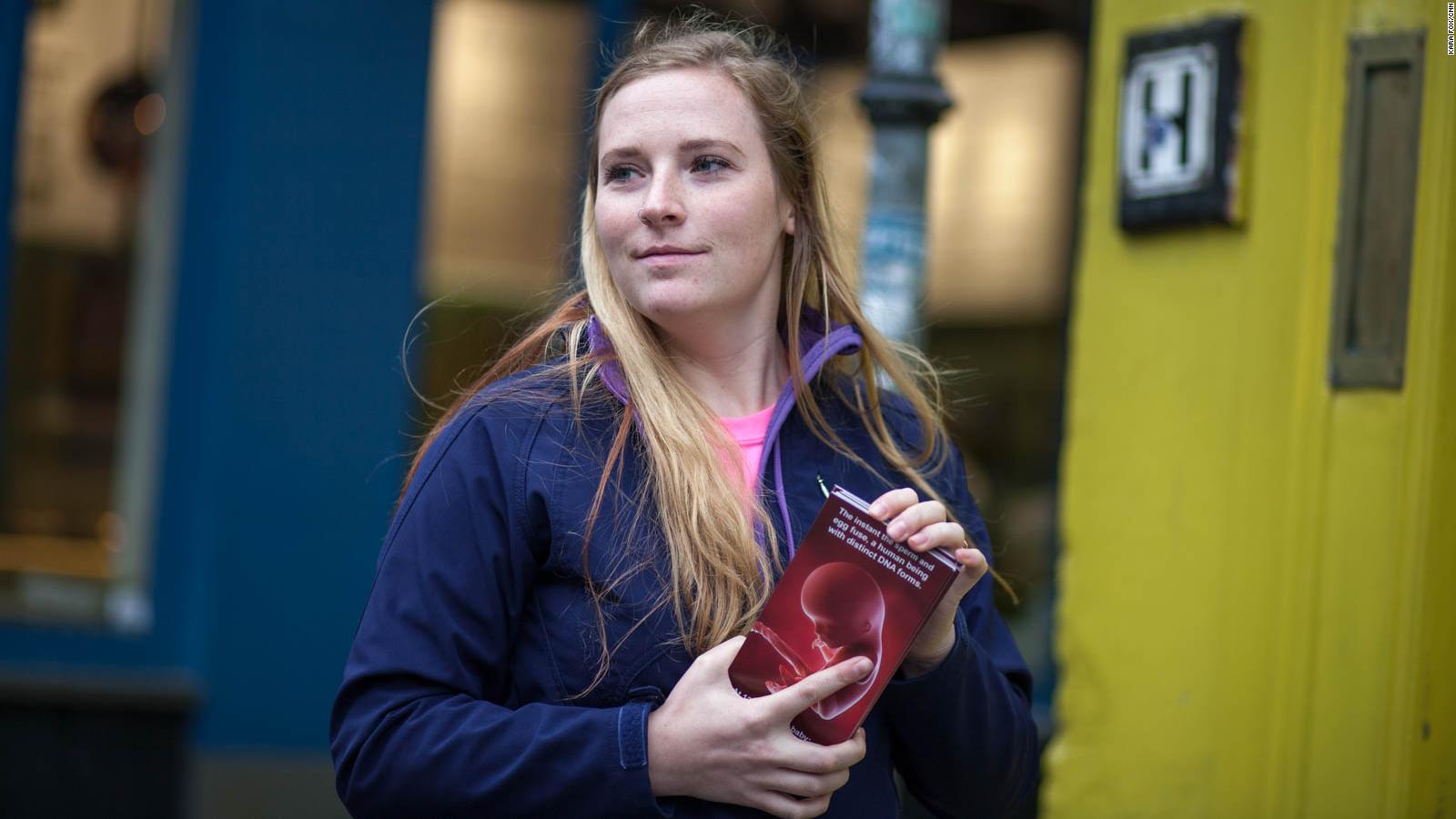
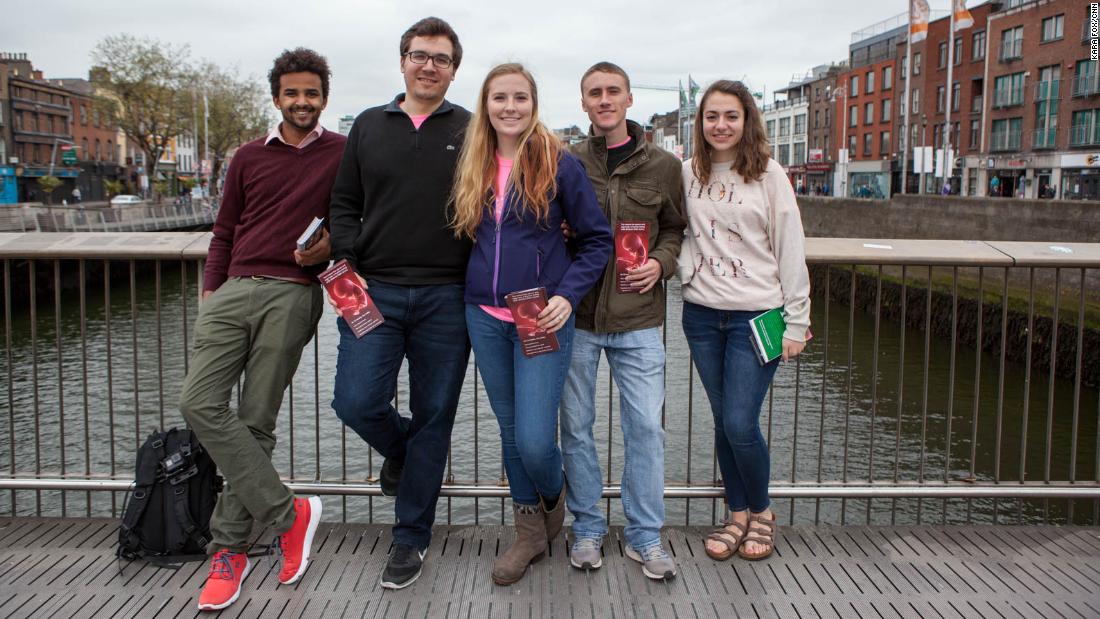
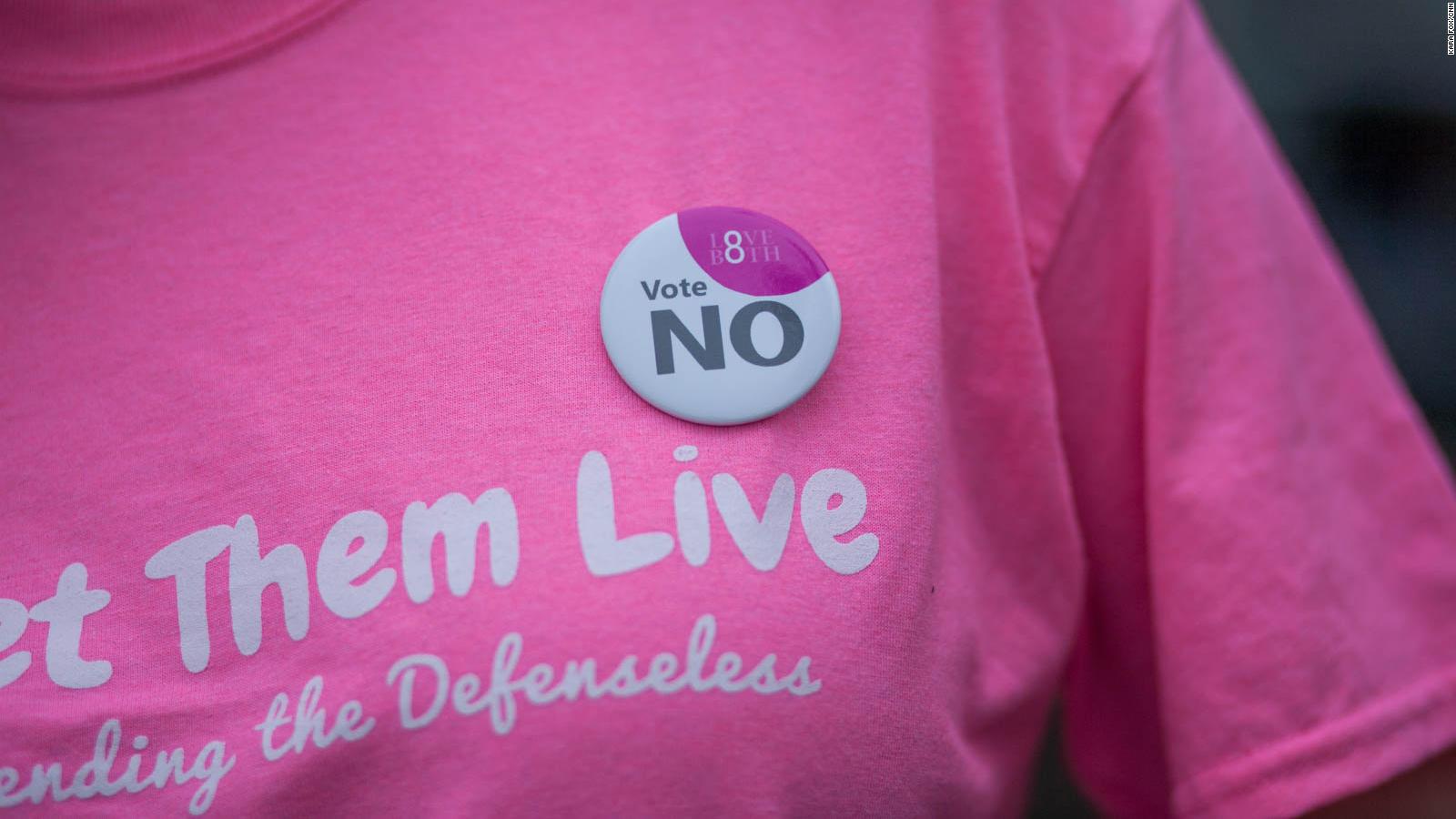
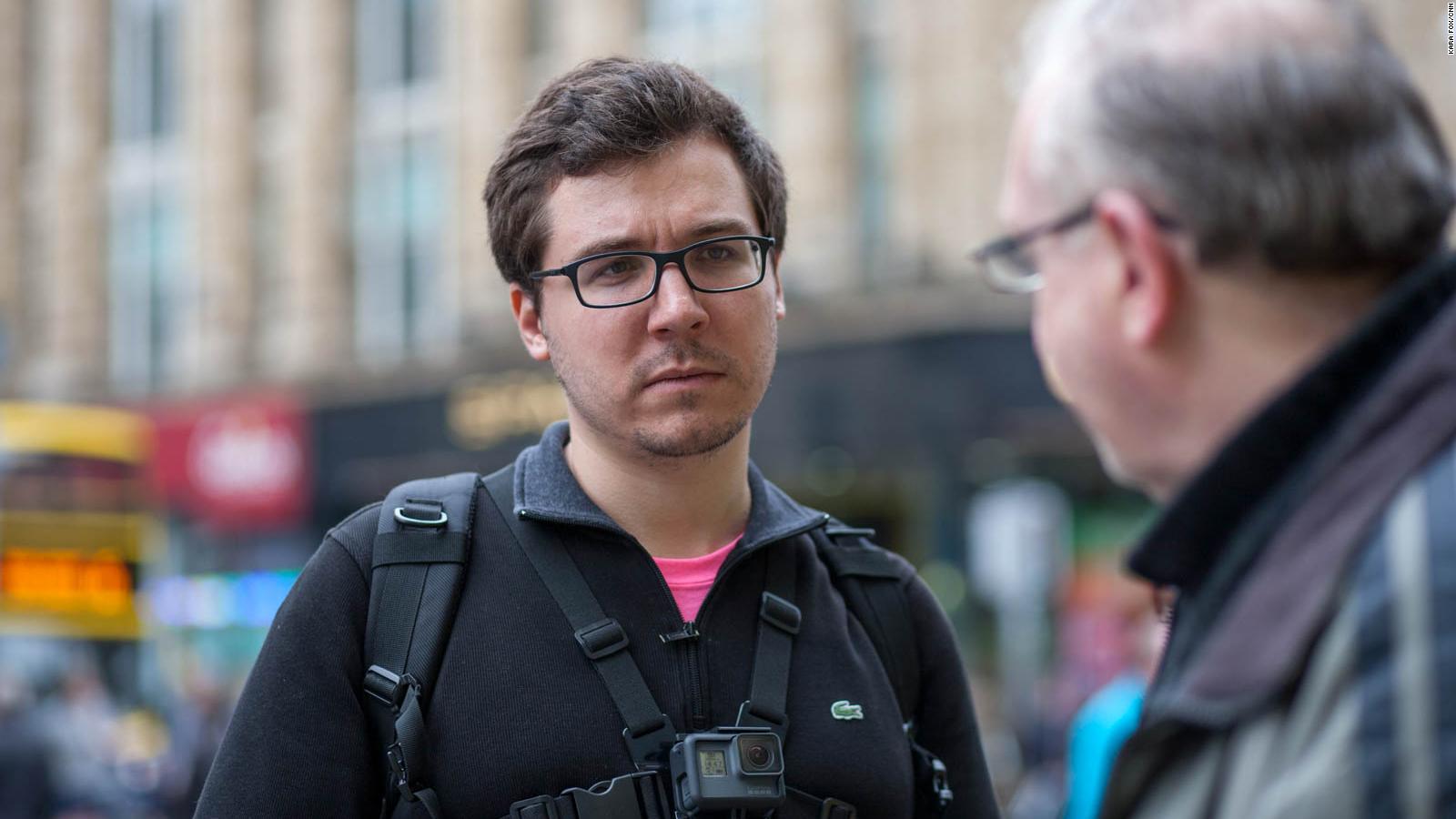
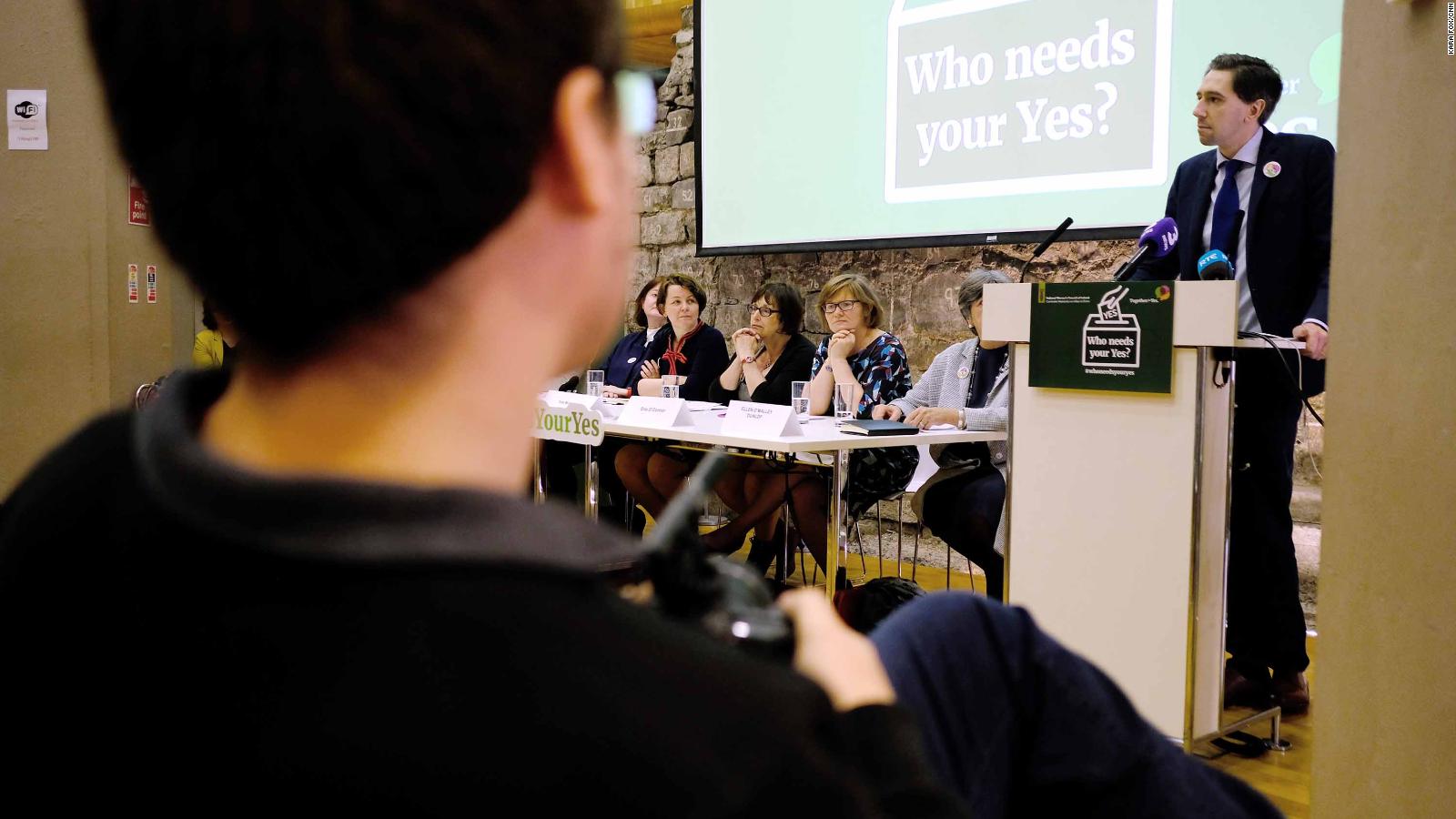
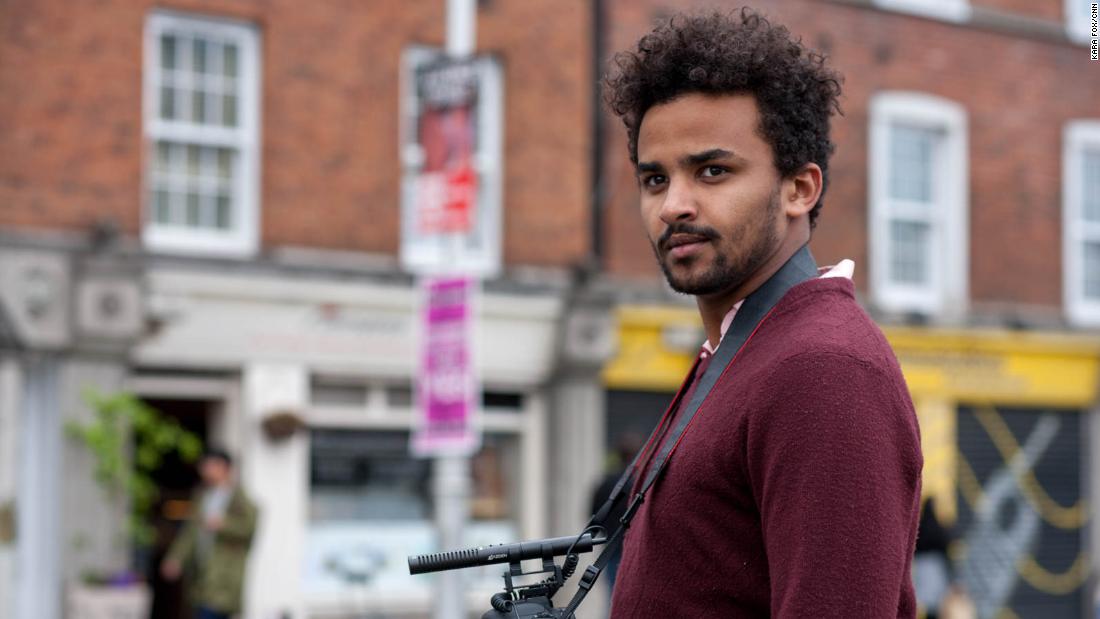
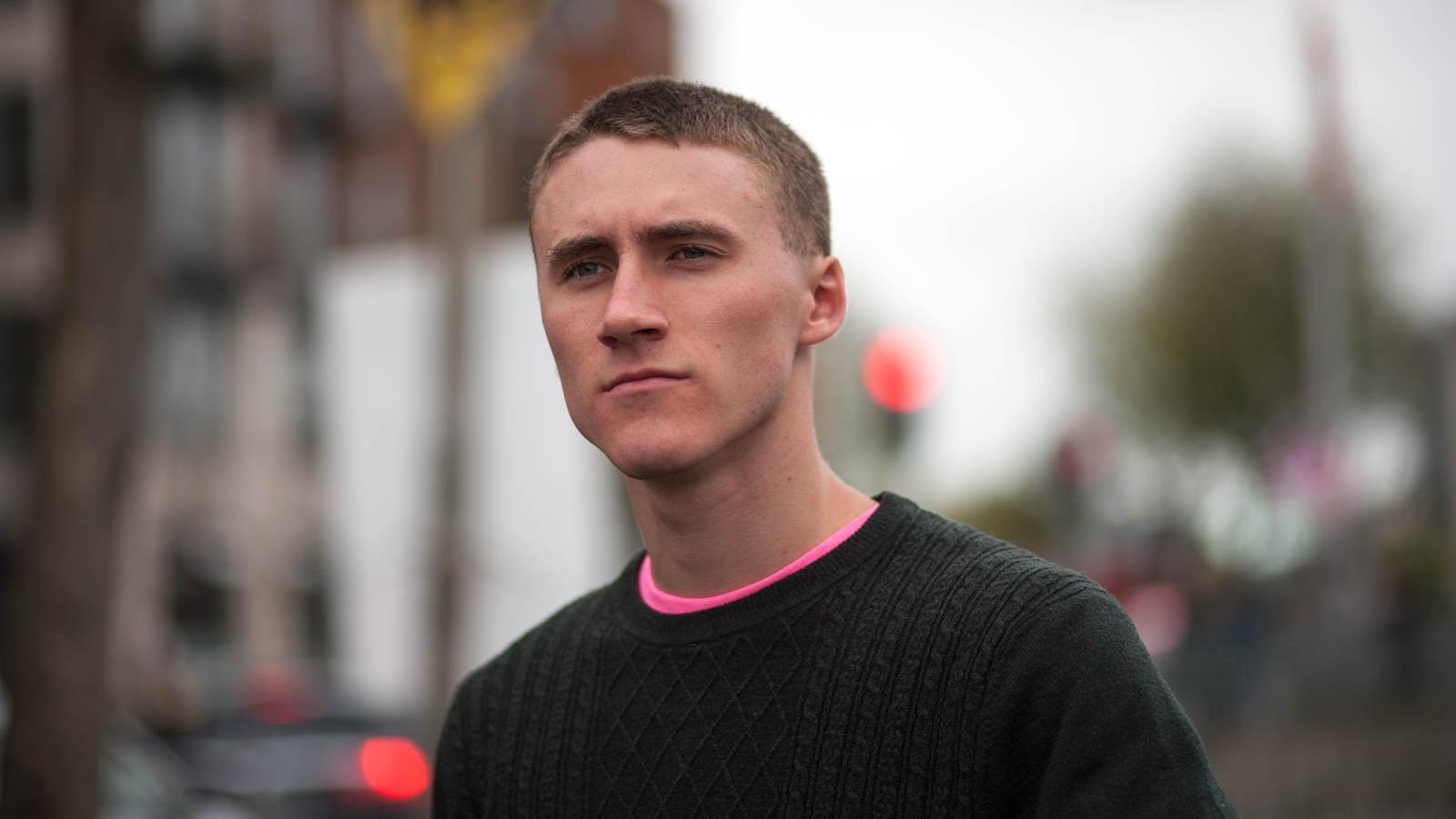
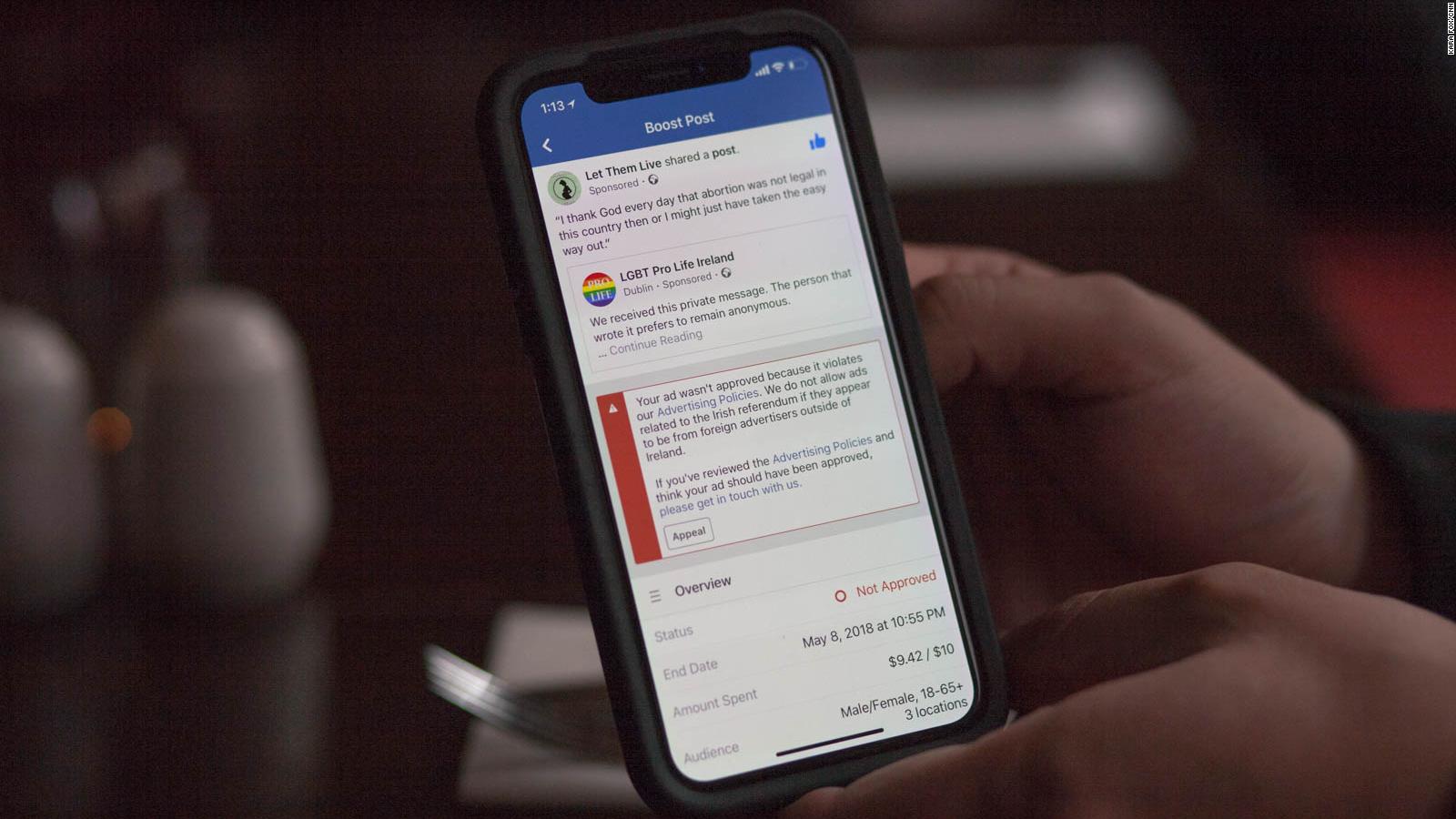
No comments:
Post a Comment